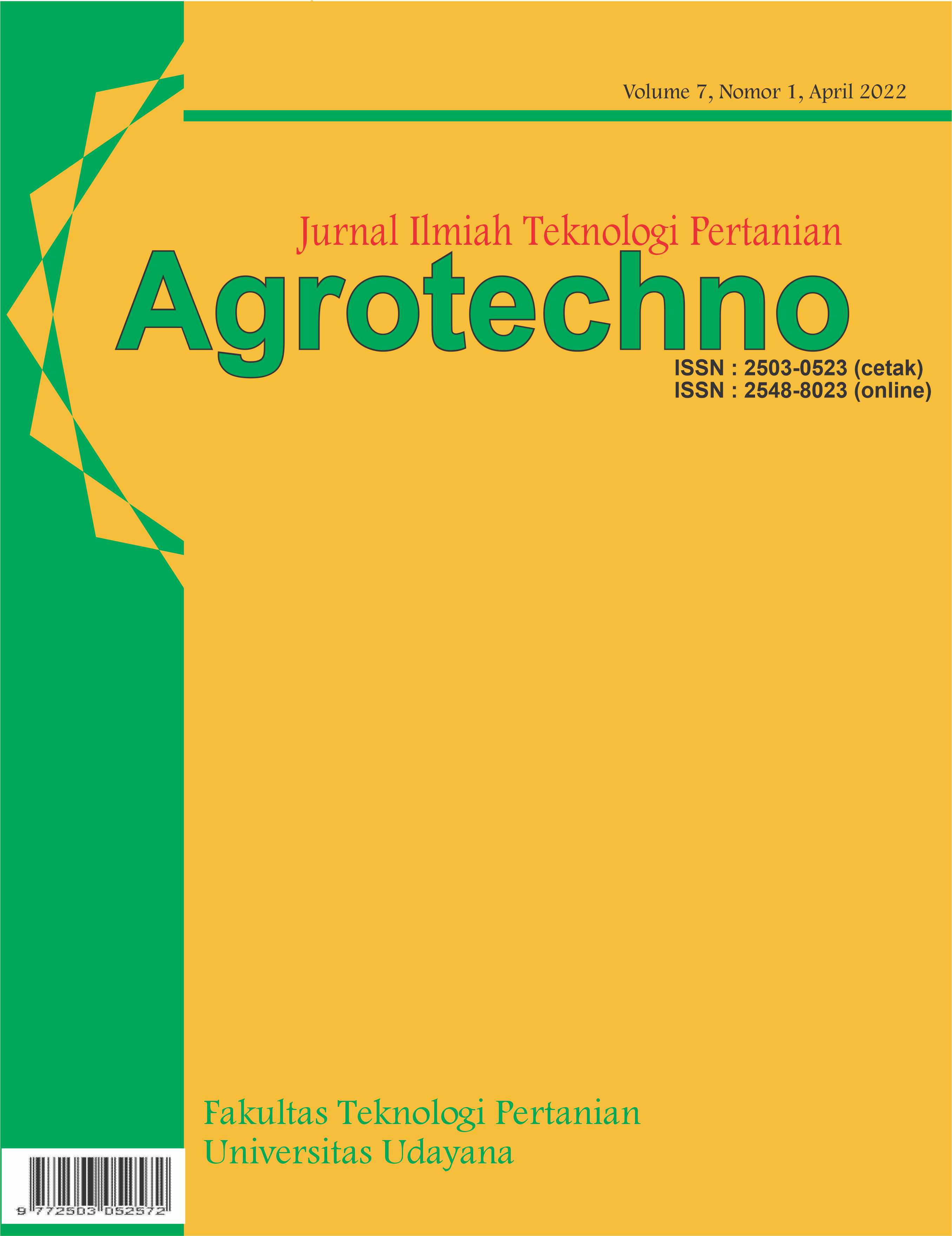Deteksi dan Indentifikasi Cemaran Kimiawi dan Mikrobiologis pada Sumber Air Tradisional (Beji) di Dataran Rendah Bali Selatan
Abstract
This study was aimed to determine the safety of Balinese local traditional water sources (beji) which are commonly used by people in lowland villages in Bali for their daily needs. In this work both chemical and biological aspects were studied, namely the mineral content, heavy metals, and the content of harmful bacteria (such as E. coli and coliforms, others, Shigella, Salmonella, and others) which might exist in the spring waters using with modified guidelines from SNI on drinking water. The research was conducted by collecting water samples from springs (beji) located in the lowlands of southern Bali. Chemical contamination measurement on heavy metal content was carried out using Atomic Absorption Spectroscopy (AAS) and the dissolved particles was observed using UV-visible Spectroscopy. The spring water samples were then grown on specific media to identify the contaminating bacteria. Twenty nine samples of spring water from Klungkung, Gianyar, Denpasar, Badung, and Tabanan regencies were collected then the physical characteristics were measured. The chemical and biological contamination tests on the spring water samples were carried out and no samples were found to be chemically or biologically polluted, and the quality of the all spring waters was deemed acceptable in the SNI regarding drinking water.
Downloads
References
Arthana, wayan. Studi Kualitas Air Beberapa Mata Air Di Sekitar Bedugul, Bali”.Tesis. Bali: Program Studi Magister Ilmu Lingkungan, Universitas Udayana, 2004.
Badan Standardisasi Nasional, 2019, http://sispk.bsn.go.id/SNI/DetailSNI/7125, diakses pada 5 Desemmber 2019.
Chang S.K.C., Zhang Y. (2017) Protein Analysis. In: Nielsen S.S. (eds) Food Analysis. Food Science Text Series. Springer, Cham. https://doi.org/10.1007/978-3-319-45776-5_18
Feng, P., Weagant, S. D., Grant. M. A., Burkhardt. W. 2002. BAM: Enumeration of Escherichia coli and the Coliform Bacteria. U. S. Food and Drug Administration., diakses pada 5 Desember 2019.
Kemenperin library, http://lib.kemenperin.go.id/neo/detail.php?id=230697, diakses pada 4 Desember 2019.
Kementerian Negara Lingkungan Hidup. 2003. Keputusan Menteri Negara Lingkungan Hidup Nomor 115 tahun 2003, tentang Pedoman Penentuan Status Mutu Air, Jakarta.
Yoga, I B. K. W., Teknik Analisis Mineral Bahan Pangan dengan Atomic Absorption Spectrophotometer, Gerakan Menulis Buku (GMB) Indonesia, 2020.










